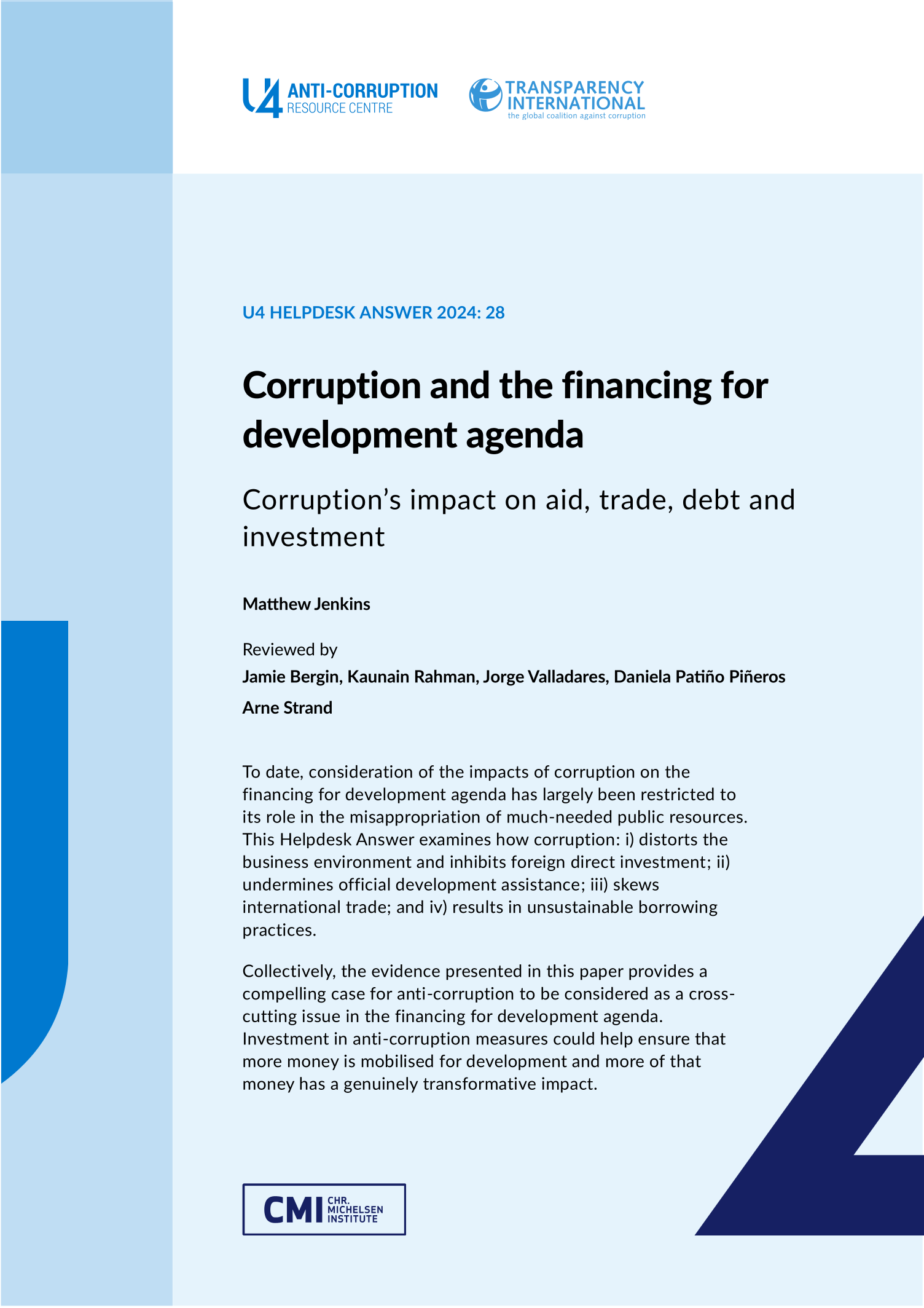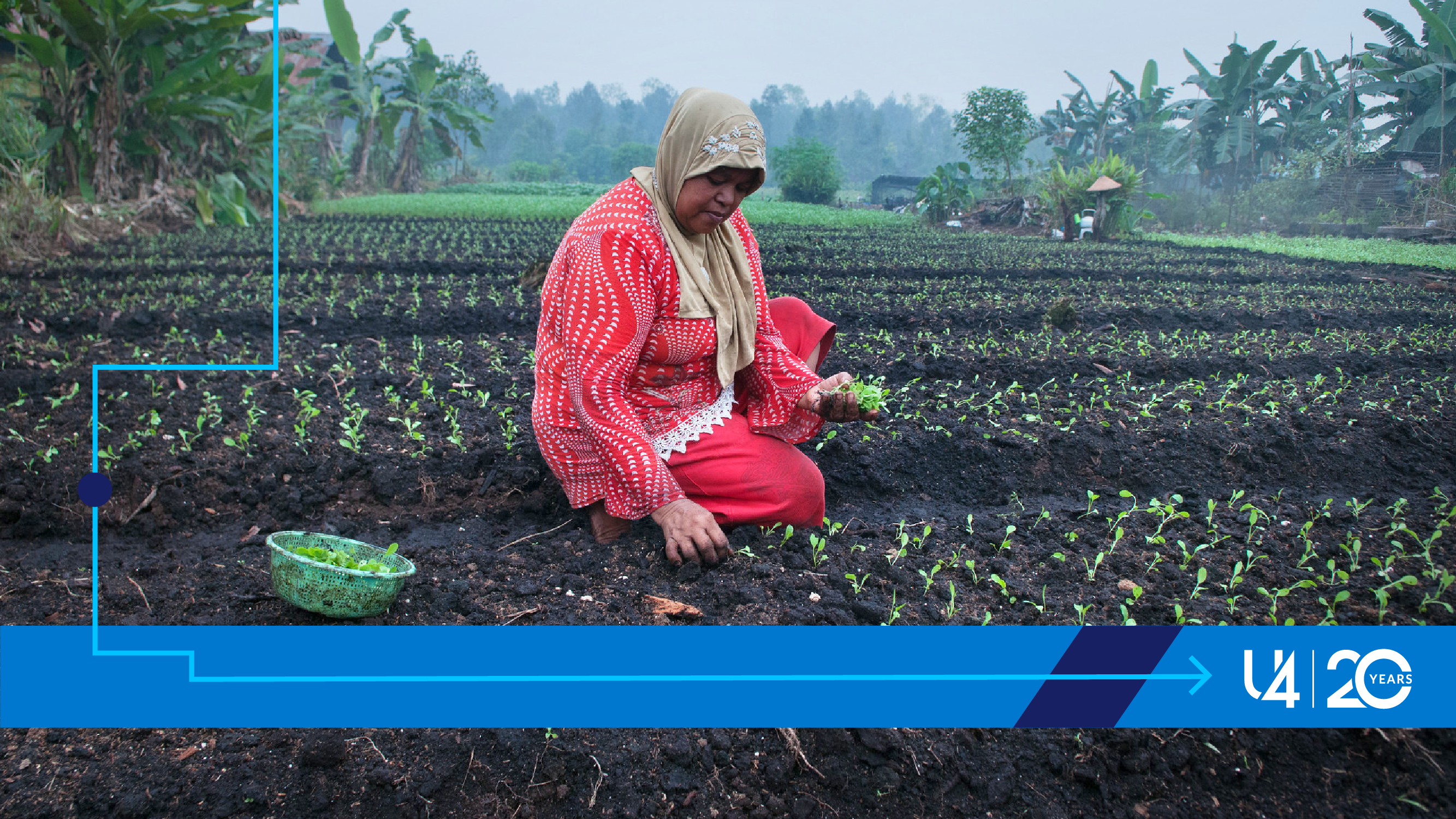Main points
- As acknowledged in successive Financing for Sustainable Development Reports, corruption continues to be an important drain on the key source of finance for development: the mobilisation, management and disbursement of domestic public resources.
- However, corruption reduces the potential positive impact of four other sources of financing for development, where, to date, corruption has received far less attention in the financing for development agenda: private sector investment, official development assistance, international trade and sovereign debt.
- There is a large and growing body of evidence that demonstrates how corruption harms economic growth, distorts the business environment, impedes firms’ productivity and competitiveness, obstructs foreign direct investment and undermines the potentially transformative effects of impact investing.
- A review of the literature underscores how corrupt practices undercut the intended impact of official development assistance at every stage, from elite capture and aid diversion through to fraud at the level of service delivery.
- Corruption has a deleterious effect on the potential of international trade to act as an ‘engine of development’, by reducing tax revenue from customs, constraining the volume of international trade and skewing trade policy towards special interest groups. In addition, corruption often plays an enabling role in illicit trade in timber, fish, wildlife and other natural resources, as well as narcotics, tobacco products, counterfeit goods and human trafficking.
- Corruption contributes to unsustainable borrowing practices as corrupt officials prioritise short-term private interests over the longer-term public interest, which can contribute to sovereign debt crises. Furthermore, the opacity of many debt financing arrangements may also create further vulnerabilities to corruption and abuse of funds.
- Collectively, this evidence illustrates that corruption can be usefully understood as a cross-cutting issue across the whole financing for development agenda. Indeed, this literature review suggests that domestic public resources cannot be fully shielded from corrupt abuses unless integrity risks relating to private investment, development assistance, international trade and opaque debt are addressed.
- Investment in anti-corruption measures could help ensure that more money is mobilised for development initiatives and more of that money reaches people and places where it can have a genuinely transformative positive impact.


